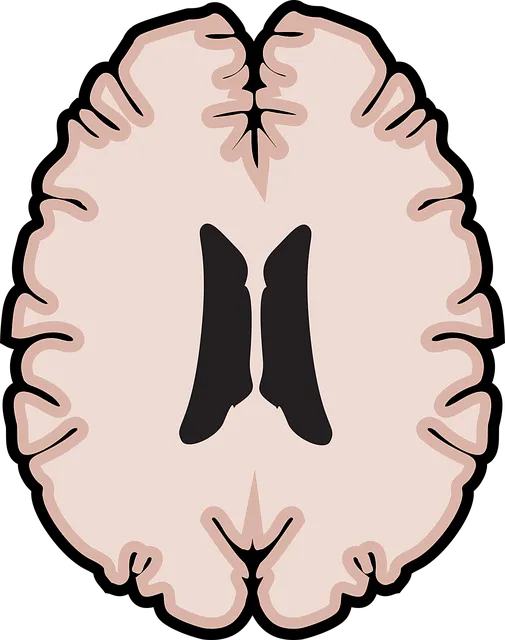Kaiser Permanente behavioral health services in Highlands Ranch employs a comprehensive risk management strategy for mental health professionals facing unique challenges like heavy caseloads and volatile situations. This approach integrates Mental Health Policy Analysis, Crisis Intervention Guidance, Compassion Cultivation Practices, open discussions, and peer learning to enhance patient outcomes and foster resilience. Through regular supervision, stress management workshops, and self-care training, the team ensures optimal mental wellness for both practitioners and patients, making Highlands Ranch a leader in emotional healing processes within the community.
Mental health professionals face unique challenges, with risk management being an essential component for safe and effective practice. This article explores comprehensive risk management planning tailored for mental health experts, drawing insights from the successful strategies employed by Kaiser Permanente Behavioral Health Services in Highlands Ranch. We’ll delve into understanding various risks, the step-by-step approach of their model, key components of a robust risk management plan, and continuous improvement techniques to ensure optimal patient care.
- Understanding Risk in Mental Health Practice
- The Kaiser Permanente Behavioral Health Services Approach
- Essential Components of a Risk Management Plan
- Strategies for Continuous Improvement and Monitoring
Understanding Risk in Mental Health Practice

Mental health professionals encounter a myriad of risks daily, from managing complex patient caseloads to dealing with potentially volatile situations. Understanding risk in this context goes beyond identifying hazards; it involves comprehending the unique challenges inherent in mental health practice. At Kaiser Permanente behavioral health services Highlands Ranch, we recognize that effective risk management starts with a thorough Mental Health Policy Analysis and Advocacy approach. This includes staying updated on evidence-based Crisis Intervention Guidance and integrating Compassion Cultivation Practices to mitigate potential harms.
By fostering an environment where professionals can openly discuss risks, share experiences, and learn from one another, we aim to enhance resilience and improve patient outcomes. This proactive approach is especially crucial given the dynamic nature of mental health care, ensuring that our team is well-equipped to navigate complex scenarios with empathy and professionalism.
The Kaiser Permanente Behavioral Health Services Approach

At Kaiser Permanente Behavioral Health Services in Highlands Ranch, a comprehensive approach to risk management is deeply embedded in their practices. This method prioritizes not just the safety of patients but also their holistic recovery and well-being. The organization recognizes that mental health professionals are on the frontlines of emotional healing processes, making effective communication strategies crucial for managing risks.
By fostering an environment that encourages open dialogue and Inner Strength Development, Kaiser Permanente ensures that both staff and clients can navigate challenges with resilience. This approach not only minimizes potential risks but also enhances the overall quality of care. Through tailored interventions and a supportive network, the Highlands Ranch location has established itself as a leader in promoting Emotional Healing Processes within the community.
Essential Components of a Risk Management Plan

A comprehensive risk management plan is an indispensable tool for mental health professionals, especially those working in dynamic environments like Kaiser Permanente behavioral health services Highlands Ranch. This strategy serves as a roadmap to navigate potential risks and promote a safe, supportive work environment. The plan should be tailored to address unique challenges within the field, encompassing several vital components.
Firstly, it involves identifying potential hazards and risks specific to mental health practice, including burnout prevention among staff and Mental Illness Stigma Reduction Efforts. This process requires professionals to reflect on their daily practices and consider factors like heavy caseloads, complex patient needs, and exposure to traumatic narratives. Additionally, incorporating strategies for self-care and stress management can significantly contribute to maintaining optimal mental wellness for both practitioners and patients.
Strategies for Continuous Improvement and Monitoring

Mental health professionals at Kaiser Permanente behavioral health services Highlands Ranch understand that continuous improvement and monitoring are vital to effective risk management. They implement regular peer supervision sessions, where experienced practitioners review cases, discuss challenging scenarios, and offer constructive feedback. This collaborative approach fosters a culture of learning and adaptability, ensuring professionals stay updated with best practices.
Additionally, the organization promotes active participation in stress management workshops and positive thinking initiatives. These programs equip mental health workers with coping mechanisms to handle workplace pressures while enhancing their overall well-being. Regular self-care training sessions, often led by peers or external experts, contribute to a resilient workforce, directly impacting improved patient outcomes.
Risk management planning is an indispensable tool for mental health professionals, ensuring safe and effective practice. By adopting strategies inspired by organizations like Kaiser Permanente Behavioral Health Services in Highlands Ranch, practitioners can effectively navigate potential risks. A comprehensive risk management plan, incorporating continuous improvement and monitoring, allows for proactive identification and mitigation of hazards, ultimately enhancing patient care and professional resilience.






